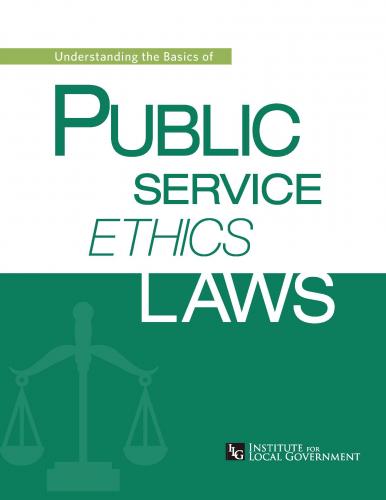Resources for Ethics and Public Service Courses
Training future local agency leaders involves exposing them to both the laws that govern public servants’ behavior as well as the values that underlie ethical behavior. The Institute’s work in public service ethics cover both, on the theory that the law creates only minimum standards for public officials’ conduct.








